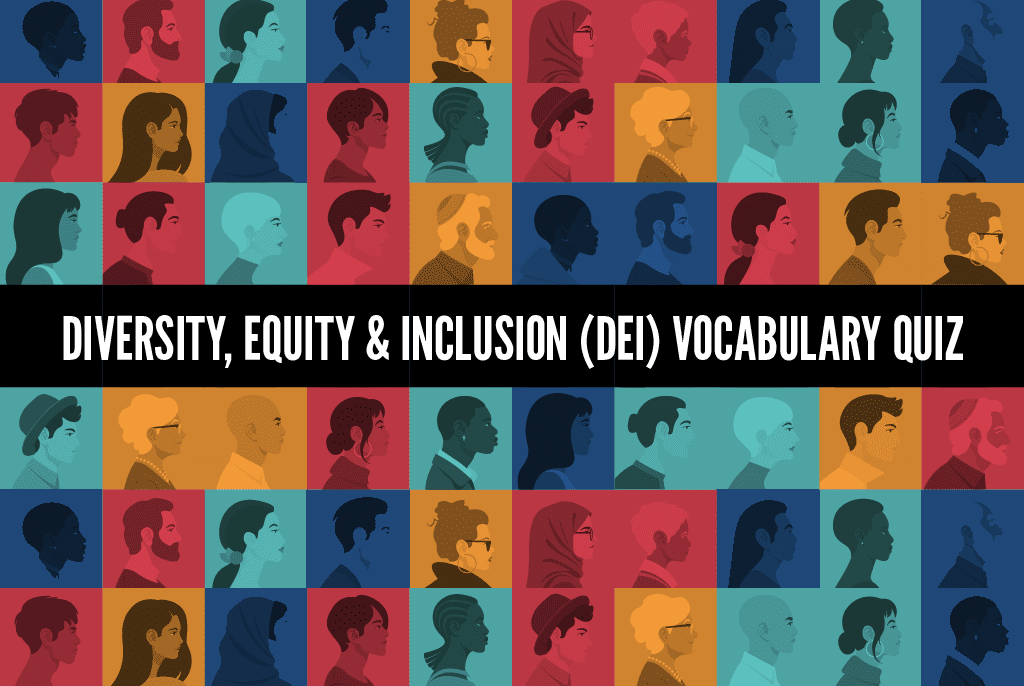Diversity, Equity, & Inclusion – Definition, Examples | United Way NCA
Jan 04, 2022

What Does Diversity, Equity and Inclusion Mean?
You may have heard of the phrase diversity, equity and inclusion (DEI) in your workplace or perhaps at your school. DEI has become a buzzword across the country and world as people strive to become more inclusive and understanding of different people and cultures.
At United Way of the National Capital Area, DEI isn’t just corporate jargon—it is an integral part of our mission, values and motivation to create a more equitable future for all National Capital Area community members, regardless of race, gender, income and ability. It’s why we practice equity every day. But what does diversity, equity and inclusion really mean? Below we break down not only the meaning of DEI but also why it is important to integrate it into both our personal and professional lives on a daily basis.
Defining Diversity, Equity and Inclusion (DEI)
Diversity
Diversity, by definition, is the practice or quality of including or involving people from a range of different social and ethnic backgrounds and of different genders, sexual orientations, etc.
Diversity is all about empowering people by respecting and appreciating what makes them different in regard to age, gender, ethnicity, religion, disability, sexual orientation, education, national origin and other defining factors about their identity. And, according to the U.S. Department of Housing and Urban Development, the definition of diversity in the workplace extends as “a collection of individual attributes that together help [a workplace] pursue organizational objectives efficiently and effectively.”
Equity
Equity, in its simplest terms as it relates to racial and social justice, means meeting communities where they are and allocating resources and opportunities as needed to create equal outcomes for all community members. In a workforce or a school setting, equity refers to fair and just practices and policies that ensure all community members can thrive.
Equity is not, by definition or practice, the same as equality. (You can learn more about the important differences between equity and equality here.)
Inclusion
Inclusion is the action or state of including or of being included within a group or structure. It is also defined as being the practice or policy of providing equal access to opportunities and resources for people who might otherwise be excluded or marginalized.
In education and workplace settings, inclusion consists of policy structures wherein students/colleagues with special needs spend most (or all) of their time with non-special needs students/colleagues. Inclusion itself can promote equity and appreciation of diversity among groups, with the aim of embracing all people regardless of race, gender, disability, medical or other need. At its core, inclusion is all about giving equal access and opportunities and getting rid of discrimination and intolerance.
Diversity, Equity and Inclusion in the Workplace
According to Harvard Business Review, diverse teams in the workplace feel less comfortable—and that’s exactly why they perform better than non-diverse teams. In numerous studies, diversity—both inherent (e.g., race, gender) and acquired (experience, cultural background)—is associated with business success. Why? Because exposure to multiculturalism expands people’s worldviews and understanding of both their own and others’ experiences.
When differing viewpoints are both encouraged and acknowledged in the workplace through equity and inclusion, ideas can thrive, leading to more business success. One 2009 study looked at support for multiculturalism versus color-blindness in nearly 4,000 employees in 18 work units at a large U.S. health care firm. The more that workers agreed that “employees should recognize and celebrate racial and ethnic differences” and the more they disagreed that “employees should downplay their racial and ethnic differences,” the more employees of color in those units reported feeling engaged in their work.
There are myriad reasons to value diversity, equity and inclusion in the workplace, but in summary, the human resources (HR) department at any company should consider diversity, equity and inclusion a core responsibility of its work because it leads to recruiting better talent and beating competitors at attracting and hiring the best candidates. DEI can also help companies make better decisions: Diverse views help leaders make less-biased decisions that drive better company performance, according to HR Morning.
How Can You Practice and Promote Diversity, Equity and Inclusion in Your Community?
There are multiple ways to embrace diversity, equity and inclusion at your workplace, your school or any other center of community life, like a place of worship, nonprofit organization you volunteer with or sports league, for example.
A simple way to get involved with DEI in the National Capital Area, is to join United Way of the National Capital Area’s Practice Equity campaign, a year-long journey of practicing equity, with daily doses of sharable inspiration and information. You can also take our Diversity, Equity and Inclusion vocabulary quiz to test your knowledge of DEI terms, and then sign up for our 21 Day Race Equity Journey to expand your understanding further.
Embracing DEI also includes giving, advocating and volunteering in your community in order to create a better future for all. We hope that you will join the equity movement with us! When none are ignored, all will thrive.


